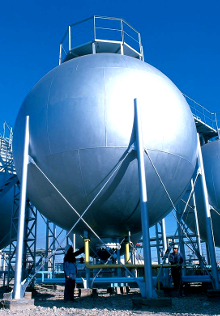Study suggests local gas stash unlikley
 A federal government report has all but destroyed the chance of some of Australia putting gas on reserve, set aside for domestic manufacturing.
A federal government report has all but destroyed the chance of some of Australia putting gas on reserve, set aside for domestic manufacturing.
With prices soaring and a number of projects clouding the future for gaseous energy last year, the resources and energy minister at the time launched a study into the east coast’s gas markets.
Among the study’s assessments and recommendations is the warning that; “there is a risk [domestic] gas prices may overshoot export parity levels.”
But insiders say it is no need for government intervention, though the link between local and international gas prices may leave Australian manufacturers paying exorbitant costs.
The study says; “while the effect of rising prices on [manufacturing] industry costs and competitiveness should not be understated,” it should be seen “in the context of a range of factors that impact on the overall competitiveness of manufacturing and industrial gas users.”
The study goes just part of the way to creating a complete picture of the influences and avenues for Australian gas; the manufacturing sector, exports and international markets.
One of the strongest claims of the 133-page report is that putting aside an amount of gas for discounted local use would be only a temporary fix for part of the problem.
It says it would not be a wise move on the federal level at least, but that state governments may consider a reservation policy as the benefits may be more significant.
“The introduction of [reservation] policy would distort market signals which may increase the risk of under-investment and defer the development of new supply,” the government study says.
“The overall net economic impact is likely to see a reduction in economic welfare if Australia foregoes export earnings and tax revenues in favour of presumably lower-value domestic production and lower future exploration and development activity.”
“Where the supply side is already tight, the importance of incentivising the supply response grows and the chances of [a reservation] causing net losses dramatically increase.”
The study suggests closely reading market demands before leaping into the next level of underground gas extraction.
“The rapidity and efficiency of a supply response will depend in a large part on clear market signals and effective government regulation.”
With several new ports and possible offshore gas processing on the way, the study says it is all about getting the goods out of the ground.
“It’s important... that all jurisdictions do not unnecessarily restrict supply development,” says the study.
“All governments should focus on removing impediments to supply and maximising opportunities from their acreage.”







 Print
Print